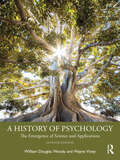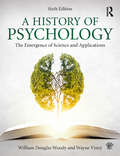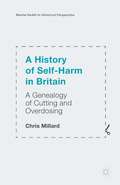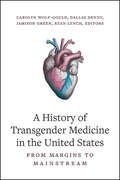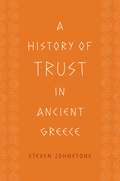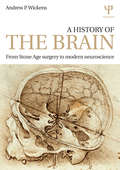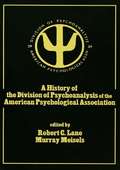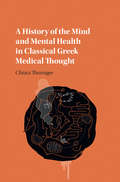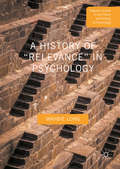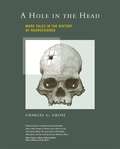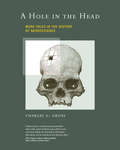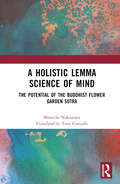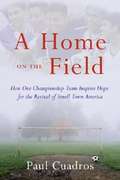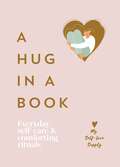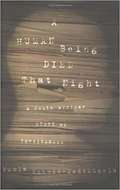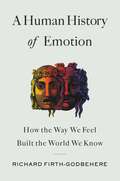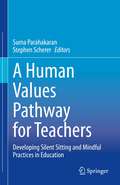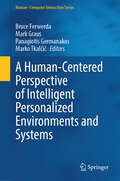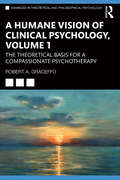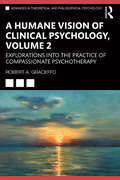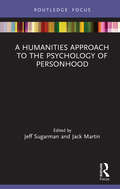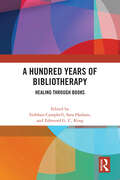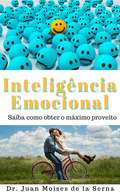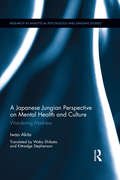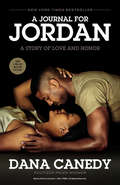- Table View
- List View
A History of Psychology: The Emergence of Science and Applications
by Wayne Viney William Douglas WoodyThis seventh edition of A History of Psychology: The Emergence of Science and Applications traces the history of psychology from antiquity through the early twenty-first century, giving students a thorough look into psychology’s origins and key developments in basic and applied psychology. It presents internal, disciplinary history as well as external contextual history, emphasizing the interactions between psychological ideas and the larger cultural and historical contexts in which psychologists and other thinkers conduct research, teach, and live. It also has a strong scholarly foundation and more than 400 new references. This new edition retains and expands the strengths of previous editions and introduces several important changes. The text features more women, people of color, and others who are historically marginalized as well as new sections about early Black psychology and barriers faced by people who are diverse. It also includes expanded discussions of eugenics and racism in early psychology. There is new content on the history of the biological basis of psychology; the emergence of qualitative methods; and ecopsychology, ecotherapy, and environmental psychology. Recent historical findings about social psychology, including new historical findings about the Stanford Prison Experiment, Milgram’s obedience research, and Sherif’s conformity studies, have also been incorporated. Continuing the tradition of past editions, the text focuses on engaging students and inspiring them to recognize the power of history in their own lives, to connect history to the present and the future, and to think critically and historically.
A History of Psychology: The Emergence of Science and Applications (Mysearchlab Series 15% Off Ser.)
by Wayne Viney William Douglas WoodyA History of Psychology: The Emergence of Science and Applications, Sixth Edition, traces the history of psychology from antiquity through the early 21st century, giving students a thorough look into psychology’s origins and key developments in basic and applied psychology. This new edition includes extensive coverage of the proliferation of applied fields since the mid-twentieth century and stronger emphases on the biological basis of psychology, new statistical techniques and qualitative methodologies, and emerging therapies. Other areas of emphasis include the globalization of psychology, the growth of interest in health psychology, the resurgence of interest in motivation, and the importance of ecopsychology and environmental psychology. Substantially revised and updated throughout, this book retains and improves its strengths from prior editions, including its strong scholarly foundation and scholarship from groups too often omitted from psychological history, including women, people of color, and scholars from outside the United States. This book also aims to engage and inspire students to recognize the power of history in their own lives and studies, to connect history to the present and the future, and to think critically and historically. For additional resources, consult the Companion Website at www.routledge.com/cw/woody where instructors will find lecture slides and outlines; testbanks; and how-to sources for teaching History and Systems of Psychology courses; and students will find review a timeline; review questions; complete glossary; and annotated links to relevant resources.
A History of Self-Harm in Britain: A Genealogy of Cutting and Overdosing (Mental Health in Historical Perspective)
by Chris MillardThis book is open access under a CC BY license and charts the rise and fall of various self-harming behaviours in twentieth-century Britain. It puts self-cutting and overdosing into historical perspective, linking them to the huge changes that occur in mental and physical healthcare, social work and wider politics.
A History of Transgender Medicine in the United States: From Margins to Mainstream
by Carolyn Wolf-Gould; Dallas Denny; Jamison Green; Kyan LynchThe most comprehensive history of transgender medicine to date, as told by more than forty scholars, physicians, psychologists, and activists from trans, gender-diverse, and allied medical communities.Arriving at a critical moment in the struggle for transgender rights, A History of Transgender Medicine in the United States takes an empathic approach to an embattled subject. Sweeping in scope and deeply personal in nature, this groundbreaking volume traces the development of transgender medicine across three centuries-centering the voices of transgender individuals, debunking myths about gender-affirming care, and empowering readers to grasp the complexities of this evolving field. More than forty contributors-including patients, advocates, physicians, psychologists, and scholars-weave an illuminating, sometimes surprising narrative of collaboration and conflict between trans people and the scientists who have studied and worked with them. An indispensable guide to understanding the current tumult surrounding trans health-care access in the United States, the volume underscores a crucial message: gender diversity is not a new phenomenon but an integral part of our shared human history.
A History of Trust in Ancient Greece
by Steven JohnstoneAn enormous amount of literature exists on Greek law, economics, and political philosophy. Yet no one has written a history of trust, one of the most fundamental aspects of social and economic interaction in the ancient world. In this fresh look at antiquity, Steven Johnstone explores the way democracy and markets flourished in ancient Greece not so much through personal relationships as through trust in abstract systems--including money, standardized measurement, rhetoric, and haggling. Focusing on markets and democratic politics, Johnstone draws on speeches given in Athenian courts, histories of Athenian democracy, comic writings, and laws inscribed on stone to examine how these systems worked. He analyzes their potentials and limitations and how the Greeks understood and critiqued them. In providing the first comprehensive account of these pervasive and crucial systems, A History of Trust in Ancient Greece links Greek political, economic, social, and intellectual history in new ways and challenges contemporary analyses of trust and civil society.
A History of the Brain: From Stone Age surgery to modern neuroscience
by Andrew P. WickensA History of the Brain tells the full story of neuroscience, from antiquity to the present day. It describes how we have come to understand the biological nature of the brain, beginning in prehistoric times, and progressing to the twentieth century with the development of Modern Neuroscience. This is the first time a history of the brain has been written in a narrative way, emphasizing how our understanding of the brain and nervous system has developed over time, with the development of the disciplines of anatomy, pharmacology, physiology, psychology and neurosurgery. The book covers: beliefs about the brain in ancient Egypt, Greece and Rome the Medieval period, Renaissance and Enlightenment the nineteenth century the most important advances in the twentieth century and future directions in neuroscience. The discoveries leading to the development of modern neuroscience gave rise to one of the most exciting and fascinating stories in the whole of science. Written for readers with no prior knowledge of the brain or history, the book will delight students, and will also be of great interest to researchers and lecturers with an interest in understanding how we have arrived at our present knowledge of the brain.
A History of the Division of Psychoanalysis of the American Psychological Associat
by Robert C. Lane Murray MeiselsIn 1909, G. Stanley Hall, the founder of the American Psychological Association, invited Sigmund Freud, Sandor Ferenczi, Carl Jung, and Ernest Jones to Clark University to present their understanding of psychoanalysis. Although their presentations were enthusiastically received by many, the discrepancy with what was then considered the mainline American psychological thought was too great and the two fields remained separate. The formation of the Division of Psychoanalysis in 1979 -- seventy years later -- had as a major goal a rapprochement between psychoanalysis and psychology. Analytically trained psychologists and those seeking training have responded with enthusiasm to the formation of the Division, which now numbers 3,500 members in thirteen short years. This volume records the history of the Division and the seminal contributions of its founding members. It describes the dynamic tensions that have existed over the years between differing clinical and theoretical concepts of psychoanalysis leading to creative dialogue.
A History of the Mind and Mental Health in Classical Greek Medical Thought
by Chiara ThumigerThe Hippocratic texts and other contemporary medical sources have often been overlooked in discussions of ancient psychology. They have been considered to be more mechanical and less detailed than poetic and philosophical representations, as well as later medical texts such as those of Galen. This book does justice to these early medical accounts by demonstrating their richness and sophistication, their many connections with other contemporary cultural products and the indebtedness of later medicine to their observations. In addition, it reads these sources not only as archaeological documents but also in the light of methodological discussions that are fundamental to the histories of psychiatry and psychology. As a result of this approach, the book will be important for scholars of these disciplines as well as those of Greek literature and philosophy, strongly advocating the relevance of ancient ideas to modern debates.
A History of “Relevance” in Psychology (Palgrave Studies in the Theory and History of Psychology)
by Wahbie LongThis book represents the first attempt to historicise and theorise appeals for ‘relevance’ in psychology. It argues that the persistence of questions about the ‘relevance’ of psychology derives from the discipline’s terminal inability to define its subject matter, its reliance on a socially disinterested science to underwrite its knowledge claims, and its consequent failure to address itself to the needs of a rapidly changing world. The chapters go on to consider the ‘relevance’ debate within South African psychology, by critically analysing discourse of forty-five presidential, keynote and opening addresses delivered at annual national psychology congresses between 1950 and 2011, and observes how appeals for ‘relevance’ were advanced by reactionary, progressive and radical psychologists alike. The book presents, moreover, the provocative thesis that the revolutionary quest for ‘social relevance’ that began in the 1960s has been supplanted by an ethic of ‘market relevance’ that threatens to isolate the discipline still further from the anxieties of broader society. With powerful interest groups continuing to co-opt psychologists without relent, this is a development that only psychologists of conscience can arrest.
A Hole in the Head
by Charles G. GrossNeuroscientist Charles Gross has been interested in the history of his field since his days as an undergraduate. A Hole in the Head is the second collection of essays in which he illuminates the study of the brain with fascinating episodes from the past. This volume's tales range from the history of trepanation (drilling a hole in the skull) to neurosurgery as painted by Hieronymus Bosch to the discovery that bats navigate using echolocation. The emphasis is on blind alleys and errors as well as triumphs and discoveries, with ancient practices connected to recent developments and controversies. Trepanation, for example, originated in Paleolithic societies and is now promoted on a variety of Web sites as a means of "enhancing" consciousness. Gross first reaches back into the beginnings of neuroscience, discussing such topics as debates over the role of the brain (as opposed to the heart) in cognition and the relationship of vision to ideas about the "evil eye." He then takes up the interaction of art and neuroscience, exploring, among other things, Rembrandt's "Anatomy Lesson" paintings--one of which prefigured the poses in a famous photograph of the dead Che Guevara. Finally, Gross examines discoveries by scientists whose work was scorned in their own time but proven correct in later eras, including Claude Bernard's argument for the importance of the constancy of the internal environment and Joseph Altman's pioneering (and ignored) discovery of adult neurogenesis.
A Hole in the Head: More Tales in the History of Neuroscience (The\mit Press Ser.)
by Charles G. GrossEssays on great figures and important issues, advances and blind alleys—from trepanation to the discovery of grandmother cells—in the history of brain sciences. Neuroscientist Charles Gross has been interested in the history of his field since his days as an undergraduate. A Hole in the Head is the second collection of essays in which he illuminates the study of the brain with fascinating episodes from the past. This volume's tales range from the history of trepanation (drilling a hole in the skull) to neurosurgery as painted by Hieronymus Bosch to the discovery that bats navigate using echolocation. The emphasis is on blind alleys and errors as well as triumphs and discoveries, with ancient practices connected to recent developments and controversies. Gross first reaches back into the beginnings of neuroscience, then takes up the interaction of art and neuroscience, exploring, among other things, Rembrandt's “Anatomy Lesson” paintings, and finally, examines discoveries by scientists whose work was scorned in their own time but proven correct in later eras.
A Holistic Lemma Science of Mind: The Potential of the Buddhist Flower Garden Sutra
by Shinichi NakazawaNakazawa connects Buddhist philosophy with modern sciences such as psychology, quantum theory, and mathematics, as well as linguistics and the arts to present a perspective on understanding the mind in a world built on interconnection and networks of relations. While Lemma Science is a new and modern study of humans, its provenance is deeply rooted in the Eastern thought tradition. The ancient Greeks identified two modes of human intelligence: the logos and lemma intellects. Etymologically, logos signifies to "arrange and organize what has been gathered in front of one's self." To practice logos-based thinking, one must rely on language. Thus, humans organize and understand the objects in the universe according to linguistic syntax. In contrast, lemma etymologically signifies the intellectual capacity to "grasp the whole at once." Instead of arranging objects along a time axis, as language does, the lemma intellect perceives the world in an intuitive, non-linear and non-causal manner, comprehending the whole in an instant. This book embarks on a venture to establish a new science based upon the lemma intellect. Using non-logos-based materials, rigorously following lemma-based methods, and transgressing the boundaries of academic fields, Nakazawa seeks to construct this new science as a fluid, dynamic entity. This book will be of great interest to researchers across the fields of Japanese studies, Buddhist studies, psychology and linguistics.
A Home on the Field: How One Championship Team Inspires Hope for the Revival of Small Town America
by Paul Cuadros"A Home on the Field" is the triumphant true story of a team of Latino high school students and their coach who fought against the prejudices of their school and small Southern town to win the North Carolina state soccer championship.
A Hug in a Book: Everyday Self-Care and Comforting Rituals
by My Self-Love SupplyWhat if all it took to improve each day was 5 minutes? From the Instagram page @MySelfLoveSupply comes A Hug in Your Book, a pocket-sized comfort book that will transform your everyday life through tiny habit changes. Filled with 5-minute, 15-minute and 30-minute self-care routines tailored to your needs, it is a book full of self-kindness tips, quotes, reminders and routines for happier days.
A Human Being Died That Night: A South African Story of Forgiveness
by Pumla Gobodo-MadikizelaA Human Being Died That Night recounts an extraordinary dialogue. Pumla Gobodo-Madikizela, a psychologist who grew up in a black South African township, reflects on her interviews with Eugene de Kock, the commanding officer of state-sanctioned death squads under apartheid. Gobodo-Madikizela met with de Kock in Pretoria's maximum-security prison, where he is serving a 212-year sentence for crimes against humanity. In profoundly arresting scenes, Gobodo-Madikizela conveys her struggle with contradictory internal impulses to hold him accountable and to forgive. Ultimately, as she allows us to witness de Kock's extraordinary awakening of conscience, she illuminates the ways in which the encounter compelled her to redefine the value of remorse and the limits of forgiveness.
A Human History of Emotion: How the Way We Feel Built the World We Know
by Richard Firth-GodbehereA sweeping exploration of the ways in which emotions shaped the course of human history, and how our experience and understanding of emotions have evolved along with us. "Eye-opening and thought-provoking!&” (Gina Rippon, author of The Gendered Brain) We humans like to think of ourselves as rational creatures, who, as a species, have relied on calculation and intellect to survive. But many of the most important moments in our history had little to do with cold, hard facts and a lot to do with feelings. Events ranging from the origins of philosophy to the birth of the world&’s major religions, the fall of Rome, the Scientific Revolution, and some of the bloodiest wars that humanity has ever experienced can&’t be properly understood without understanding emotions.Drawing on psychology, neuroscience, philosophy, art, and religious history, Richard Firth-Godbehere takes readers on a fascinating and wide ranging tour of the central and often under-appreciated role emotions have played in human societies around the world and throughout history—from Ancient Greece to Gambia, Japan, the Ottoman Empire, the United States, and beyond. A Human History of Emotion vividly illustrates how our understanding and experience of emotions has changed over time, and how our beliefs about feelings—and our feelings themselves—profoundly shaped us and the world we inhabit.
A Human Values Pathway for Teachers: Developing Silent Sitting and Mindful Practices in Education
by Suma Parahakaran Stephen SchererThis book combines perspectives from psychology, spiritual education and digital teaching pedagogies in a transnational framework to discuss the Education in Human Values Program (EHV) for child development, with a focus on silent sitting, mindfulness, meditation and story-telling as tools in the classroom. Through positive guidance in the early stages of child development using EHV tools, teachers will be better equipped to handle disciplinary issues in primary and secondary schools. These practices are also useful for the higher education community, as teachers and educators from tertiary institutions may adopt these practices in their teaching and become reflective practitioners. Topics such as teacher morale and school climate and its impact on children are discussed in relation to building resilience, reflective capacities, and inner strength (shared values) using an intrinsic and transformational approach. The discussions also include perspectives from the neurosciences. With contributions from teachers and educators from the US, South Africa, Malaysia, Australia, Hong Kong and Mauritius, this edited volume addresses the challenges, strengths and weaknesses associated with daily teaching practices in primary and secondary schools and higher education institutions. The content is relevant to policymakers and researchers in child development studies, with a particular focus on the impact of silent sitting, mindful practices, and meditation on children’s self-regulation and resilience. The authors collectively espouse that silent sitting techniques can help a child to grow and discover their hidden potential, thus enhancing their social, emotional, spiritual and physical capacities.
A Human-Centered Perspective of Intelligent Personalized Environments and Systems (Human–Computer Interaction Series)
by Marko Tkalčič Panagiotis Germanakos Bruce Ferwerda Mark GrausThis book investigates the potential of combining the more quantitative - data-driven techniques with the more qualitative - theory-driven approaches towards the design of user-centred intelligent systems. It seeks to explore the potential of incorporating factors grounded in psychological theory into adaptive/intelligent routines, mechanisms, technologies and innovations. It highlights models, methods and tools that are emerging from their convergence along with challenges and lessons learned. Special emphasis is placed on promoting original insights and paradigms with respect to latest technologies, current research trends, and innovation directions, e.g., incorporating variables derived from psychological theory and individual differences in adaptive intelligent systems so as to increase explainability, fairness, and transparency, and decrease bias during interactions while the control remains with the user.
A Humane Vision of Clinical Psychology, Volume 1: The Theoretical Basis for a Compassionate Psychotherapy
by Robert A. GraceffoThe primary purpose of psychotherapy is to improve a patient’s subjective experience. A Humane Vision of Clinical Psychology, Volume I shows readers what this might really mean, how it can be achieved, and where prevailing views go wrong in achieving it. It lays out an alternative idea of human suffering and human healing, one that deemphasizes constructs and prioritizes experience itself. Early chapters argue that helping people to "know new things" is the ultimate target of psychotherapeutic change, but that our field has not sufficiently reflected on the complications of this task. A theory is then offered, which suggests that the unthinkable aspects of human experience are responsible for the very ways in which we human beings think. It invites and outlines a serious reformulation of psychotherapy in which human cognition is not the seat but the beneficiary of human change. This book will be valuable for therapists, psychologists, psychiatrists, and other practitioners as well as graduate and undergraduate students in the fields of psychiatry, psychology, psychotherapy, mental health, social work, and philosophy. It will be of great interest for clinicians who find themselves disenchanted with the field’s current ethos, which is stilted by scientistic approaches to soothing the suffering of the other.
A Humane Vision of Clinical Psychology, Volume 2: Explorations into the Practice of Compassionate Psychotherapy
by Robert A. GraceffoThe purpose of A Humane Vision of Clinical Psychology, Volume II, is to encourage clinical and personal reflection on the part of reading clinicians, so as to foster more thought about the meaning and complexities of the therapeutic encounter. It does so by offering three clinical examples and a searching discussion of what each might teach us about the case at hand, ourselves, and the world. The book begins with an honest exploration of the limitations accompanying any and every attempt to write about the action of psychotherapy, which the first volume characterised as ineffable. More particularly, it is suggested that the deepest therapeutic phenomenon, experiential "proximity," is itself neither fully observable to the participants nor capturable by a verbal account. These concessions, which effectively confine the therapeutic "mechanism" to the air of every encounter, threaten to make descriptions of psychotherapy useless. However, while we can never rightly describe the fundamental cause of change, we can describe its observable corollaries. It is then suggested that certain therapeutic postures—those of kindness, openness, and sameness—facilitate the expansion of the other’s cognitive apparatus and thereby the "knowns" that inhabit their minds (the main goal of therapy, per Volume I). A Humane Vision of Clinical Psychology, Volume II, is valuable for therapists, psychologists, psychiatrists, and other practitioners as well as graduate and undergraduate students in the fields of psychiatry, psychology, psychotherapy, mental health, social work, and philosophy.
A Humanities Approach to the Psychology of Personhood
by Jack Martin Jeff SugarmanIn this set of insightful essays, the concept of the psychological humanities is defined and explored. A clear rationale is provided for its necessity in the study and understanding of the individual and identity in a discipline that is occupied largely by empirical studies that report aggregated data and its analysis. Contributors to this volume are leading scholars in theoretical psychology who believe that psychology must be about persons and their lives. In these essays, they draw from a variety of disciplines that include art, literature, life writing, and history to make a case for the psychological humanities. A final chapter provides a critical commentary on the value of the psychological humanities. The chapter argues that psychology must draw on the knowledge and practices of the humanities, as well as the sciences and social sciences, in order to attain a greater understanding of personhood. This book is aimed at upper-level undergraduate and postgraduate students and scholars of psychology, particularly theoretical psychology, philosophy of the mind, and those from a humanities background interested in exploring the concept of the psychological humanities.
A Hundred Years of Bibliotherapy: Healing through Books
byThe First World War gave new and vital impetus to the ancient idea that books could heal. This interdisciplinary collection provides a targeted survey of 100 years of historical and contemporary understandings and practices of ‘the book as cure’.The contributors explore the curative practices of wartime reading, how they were developed and institutionalized after the war, and the afterlives of these ideas and practices today. Divided into three sections, the first considers bibliotherapy in World War I.’ It is rooted in the wartime cultures which ensured bibliotherapy became part of the active treatment of soldiers’ damaged minds and bodies on both sides of the Atlantic after 1914. Parts two and three examine the expanding variety of critical contexts, both historical and more modern, in which reading and wellbeing continued to intersect. The chapters draw on a wide range of source material from trench magazines to autograph books to e-novels, as well as on data and information drawn from practice-based encounters. They also provide the basis for further scholarly exploration of, for example, national traditions and contexts and the inter-disciplinary relationships which they inspire.A Hundred Years of Bibliotherapy: Healing through Books provides the first interdisciplinary dialogue on and account of bibliotherapy, addressing both historical and present-day modes of engaging with the ostensibly curative power of reading and reading cultures. It is an invaluable resource for scholars of literary studies, book history, and the medical humanities.
A Inteligência Emocional Aprenda a Tirar O Máximo Proveito
by Fabiana Rodrigues Castelo Branco Juan Moises de la SernaSe algo foi dito nos últimos anos no campo da Psicologia tem sido no que diz respeito à Inteligência Emocional, a princípio como um desenvolvimento da área de estudo das emoções humanas e suas implicações na vida, para então adquirir um papel predominante em áreas tão importantes como a educação ou a empresa, e tudo isso graças aos benefícios observados, que ela causa tanto no desempenho como na satisfação com a vida por quem cultiva a Inteligência Emocional. Este ebook trata de oferecer uma aproximação para as últimas pesquisas no campo da Inteligência Emocional, aproximando-se tanto a sua definição e consequências, mas sobretudo, como isso pode ser aplicado na vida cotidiana para obter os maiores benefícios possíveis. Um caminho necessário, o de cultivar a Inteligência Emocional, que será vista como imprescindível quando você finalizar a leitura deste ebook.
A Japanese Jungian Perspective on Mental Health and Culture: Wandering madness (Research in Analytical Psychology and Jungian Studies)
by Iwao AkitaA Japanese Jungian Perspective on Mental Health and Culture: Wandering Madness explores differences between Western and Japanese models of mental health. It argues that while the advent of modern mental health has brought about seminal changes in our understanding of and relationship to those who face its challenges, the cure also seems to be something of the cause, as the classification of mental disorders continues to expand and increasing numbers of people show up to fill them. In this book, psychiatrist and Jungian analyst Iwao Akita presents a new theory of psycheology in order to highlight what has been lost in our rush to medicalize the psyche, as well as offer a remedy for restoring balance. Drawing upon examples from both Japanese and Western cultures, Dr. Akita discusses an alternative perspective to the polarized viewpoint towards which the West tends. He distinguishes the concept of madness from psychopathology and outlines its dynamics through numerous clinical and cultural examples. He describes the underlying dynamics of substance use and personality disorders, makes important links between these conditions, and clarifies how they can develop into madness. With references to familiar stories and myths from Western and Japanese cultures, this book makes an important contribution to our understanding of mental illness and health, while also making us more aware of how these issues are common to the human experience. This book will be of key interest to academics, researchers, and postgraduate students in the fields of psychoanalysis, Jungian and Post-Jungian studies, and mental health studies. It will also appeal to psychiatrists and other mental health professionals, as well as those with a particular interest in substance use, personality disorders, madness, and cross-cultural comparisons of mental health models.
A Journal for Jordan: A Story of Love and Honor
by Dana CanedyIn 2005, First Sergeant Charles Monroe King began to write what would become a 200-page journal for his son in case he did not make it home from Iraq. King, forty-eight, was killed on 14 October 2006. His son, Jordan, was six months old, and they had spent only two weeks together. A JOURNAL FOR JORDAN is a father's letter to the son he will never see again. In it he gives his boy advice on everything from how to withstand disappointment to how to behave on a date, and his very personal and wrenching accounts of losing men in battle. It is also a mother's search for answers. Why did King volunteer for the mission that killed him? Why was it such a struggle to accept this man she deeply loved as he was Optioned for film by Denzel Washington and Columbia Pictures, A JOURNAL FOR JORDAN is a tender introduction, a loving good-bye, a reporter's inquiry into her soldier's life and a heartrending reminder of the human cost of war.
